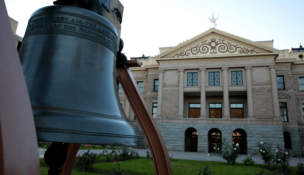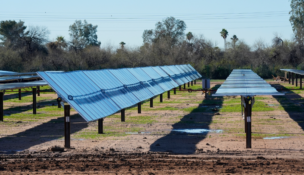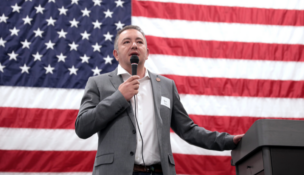Deficit politics in the COVID era is tricky as ever
Julia Shumway and Arren Kimbel-Sannit//April 24, 2020//[read_meter]
Deficit politics in the COVID era is tricky as ever
Julia Shumway and Arren Kimbel-Sannit//April 24, 2020//[read_meter]
The next two months present an unprecedented challenge for Arizona’s lawmakers. Ask just about anyone, and they’ll say the same — for fighting off an epidemic, there’s no playbook, not...
No tags for this post.

















